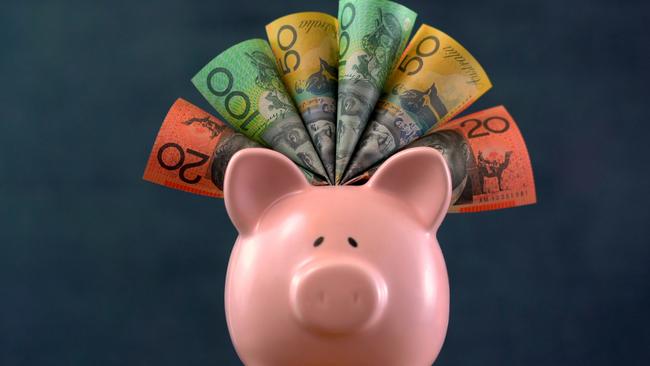Higher prices for essentials are denting Australians’ discretionary income, IBISWorld analysts say
FAMILIES feeling the pinch from rising living costs are postponing holidays, putting off smartphone upgrades and switching to budget brands.
VIC News
Don't miss out on the headlines from VIC News. Followed categories will be added to My News.
FAMILIES feeling the pinch from rising living costs are postponing holidays, putting off smartphone upgrades and switching to budget brands.
Higher prices for essentials such as electricity, gas, rent and health insurance are eating into spare cash, with annual discretionary income per household set to shrink by $1700 this financial year, according to analysts.
The squeeze, forecast by IBISWorld, follows a fall of $1100 per household last financial year.
HOW MUCH MONEY YOU NEED FOR BASIC BILLS
VICTORIANS PAYING TOO MUCH FOR POWER
FAMILIES SEARCHING FOR CHEAPER GROCERIES

IBISWorld measures discretionary income as take-home pay from wages plus income from other sources such as investments, minus spending on necessities.
“Sluggish wages growth and a rise in the cost of living are expected to place additional stress on the ability of households in several income brackets to pay for discretionary goods and services,” said IBISWorld senior industry analyst Nick Tarrant.
“Expenses are outstripping wages growth. More people will cut back on travel and hold back on purchases,” he said.
“You see people scale back and go towards a more budget retailer or online instead of a department store.
“That’s bad for some retailers, especially those that rely on selling products deemed to be luxuries.”

IBISWorld says households will spend an average of $300 extra on housing, $255 more on power, $160 more for health and $140 extra for insurance in 2017-18. However, they will get relief from lower food, clothes and fuel.
Per-household discretionary income is predicted to fall to an average $50,500 this financial year, down from $52,200 a year earlier and from $53,300 two years ago.
The modelling assumes no changes to interest rates for this financial year.
Mr Tarrant said income had also been impacted by rising unemployment and a long-term decline in weekly hours worked.
IBISWorld predicts Australians’ total discretionary income will amount to $484.1 billion in 2017-18, down for two years running for the first time since 1992.
“This is in decline despite population growth,” Mr Tarrant said.


